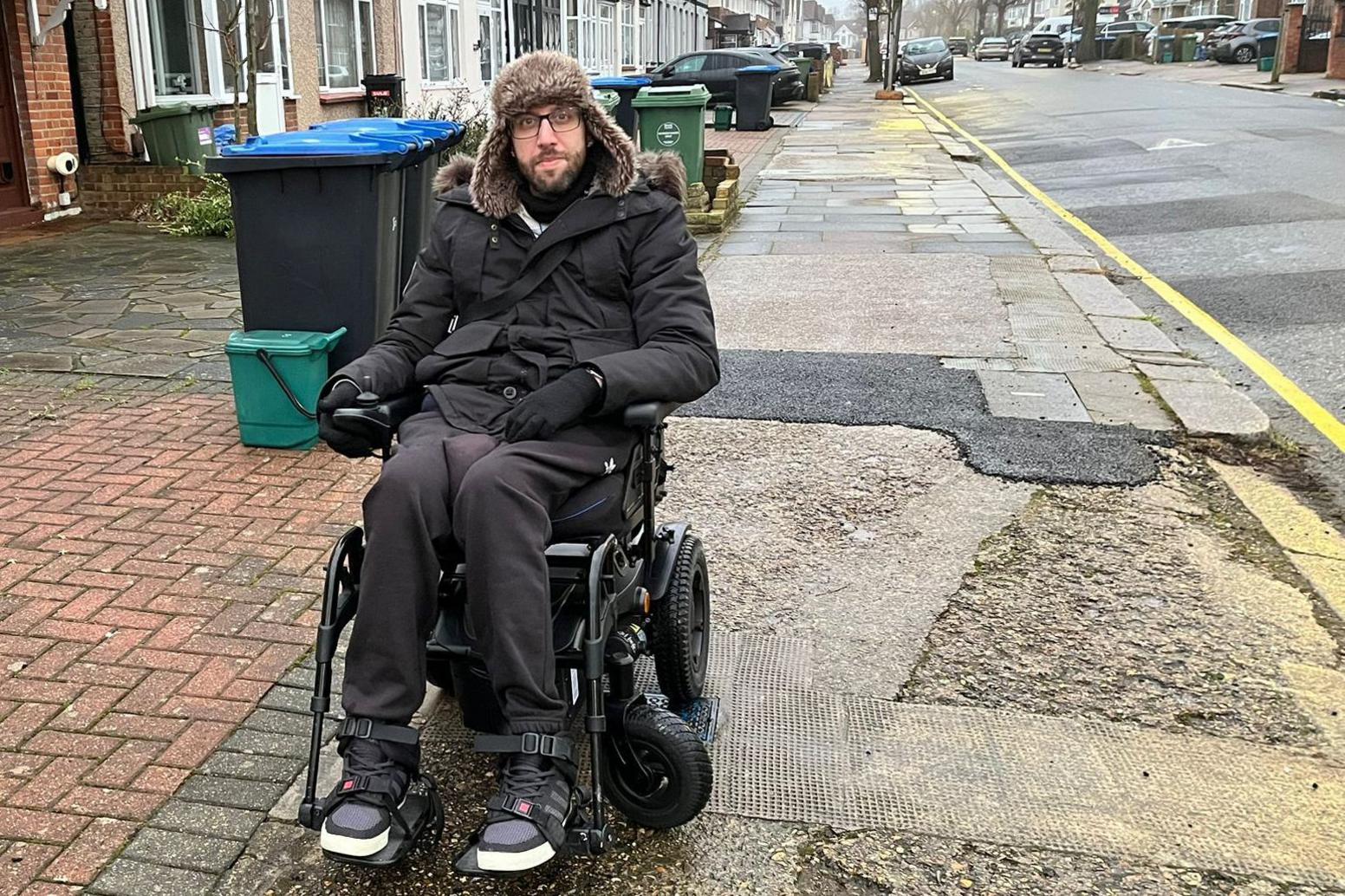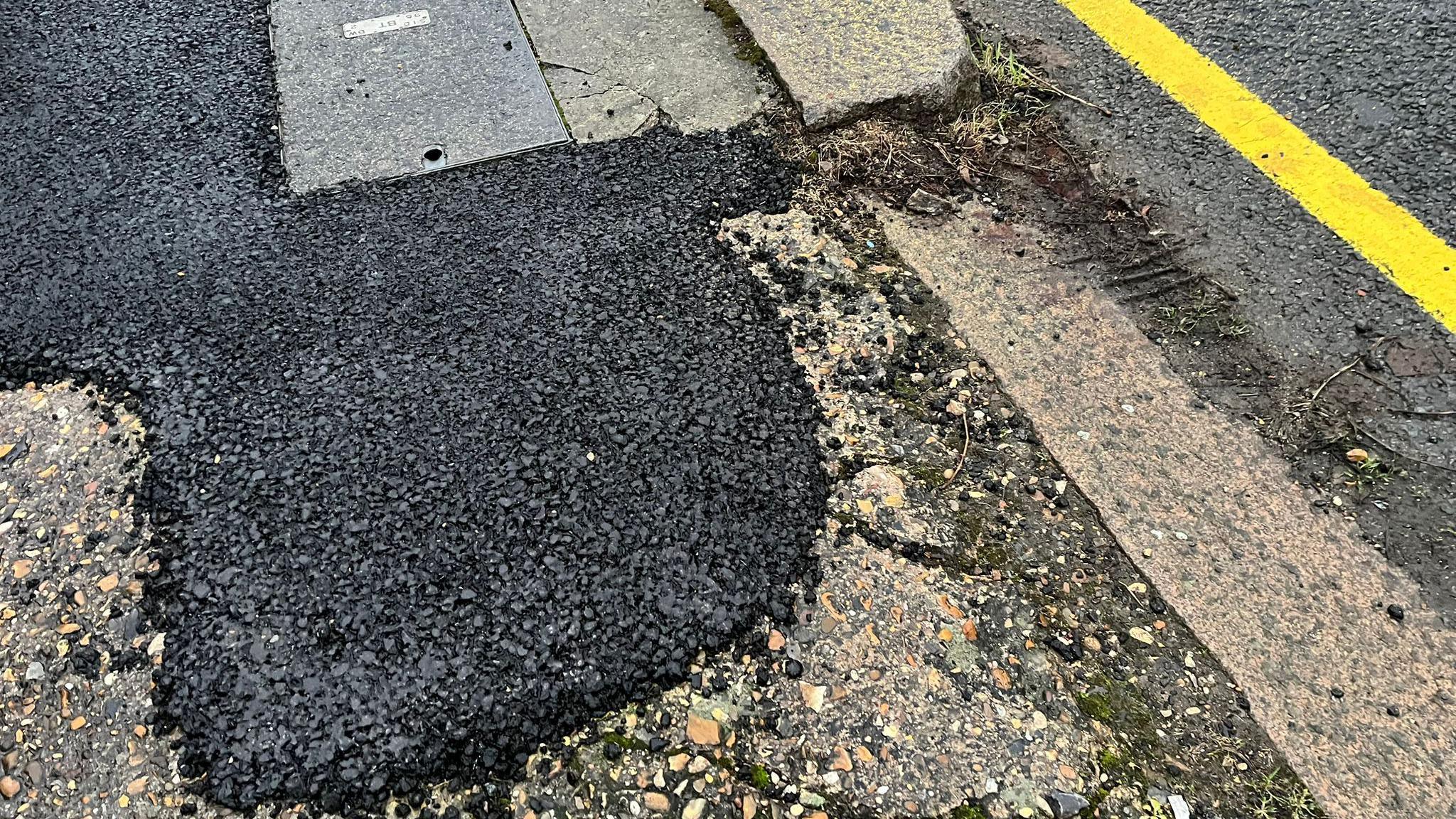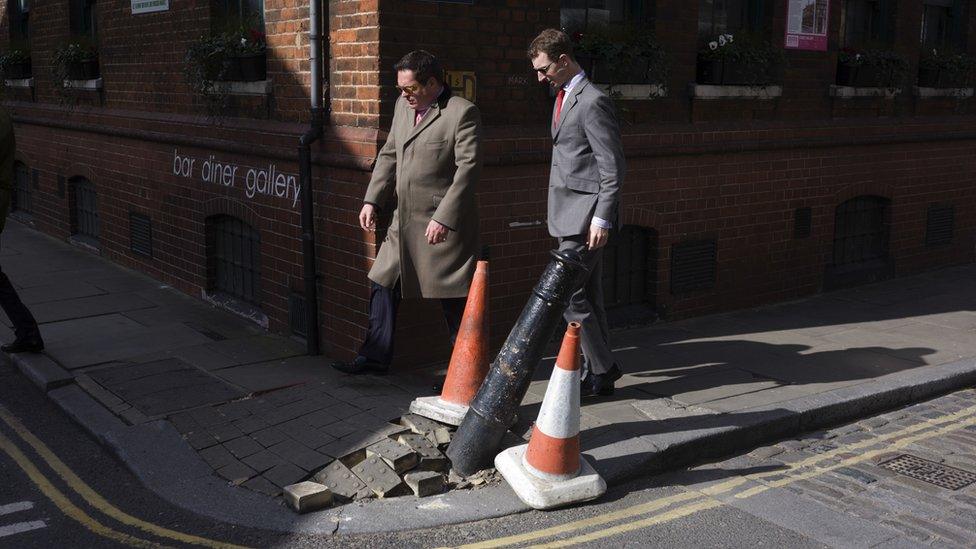Unsafe pavements 'riddled' with cracks and holes

Disability rights campaigner Adam Gabsi said he nearly fell out of his wheelchair on Scarle Road
- Published
Pavements in north-west London are becoming increasingly dangerous as their condition deteriorates, campaigners have said.
Residents of Scarle Road in Wembley have signed a petition calling on Brent Council to repair the uneven surfaces.
Adam Gabsi, a disability rights campaigners who uses a wheelchair, said the safety risks are "immense".
Krupa Sheth, from the council, said the authority's budget does not stretch to cover the costs of mending all the pavements.

The pavements along Scarle Road in Wembley are causing problems for those with mobility issues
She said the body was responsible for 529 miles of pavement in Brent, but had only the budget to repair the equivalent of 19 miles every year.
Mr Gabsi said: "I think street space is a public space and when [the streets] are inaccessible, disabled people are denied their basic freedom of movement."
He added that he had nearly fallen out of his wheelchair "multiple times" along the road.
"I'm quite lucky I have a seatbelt.
"I haven't seen many roads like it. The safety risks are immense."
Sheth said budget constraints mean only the very worst areas could be repaired, and the council "must prioritise" the money for the "most urgent repairs".
She said councillors had visited Scarle Road to discuss residents' concerns, and that some holes had been fixed as they had "met the threshold for action".
Signatories of the recent petition said the pavements still pose a "significant risk", particularly to people with mobility issues.
Pavements "riddled with cracks, potholes and broken tiles" are unsightly as well as hazardous, the petition states, and in some cases pedestrians are forced onto the road, "introducing further risks to drivers and road users".

Brent Council says it encourages people to report the pavement problems they find
Brent Council spent £5.5m in 2022 and 2023 on maintaining carriageways, highways and pedestrian paths - including the reconstruction of nearly six miles of footways.
It has an £11m maintenance programme for 2023 to 2026, which allows councillors to chose one road within their ward for repairs up to £150,000.
The budget also allows for wider repairs, which the council said were prioritised using "asset management principles" - balancing costs, opportunities and risks against the performance of assets to achieve an organisation's objectives.
Listen to the best of BBC Radio London on Sounds and follow BBC London on Facebook, external, X, external and Instagram, external. Send your story ideas to hello.bbclondon@bbc.co.uk, external
Related topics
- Published11 August 2018
